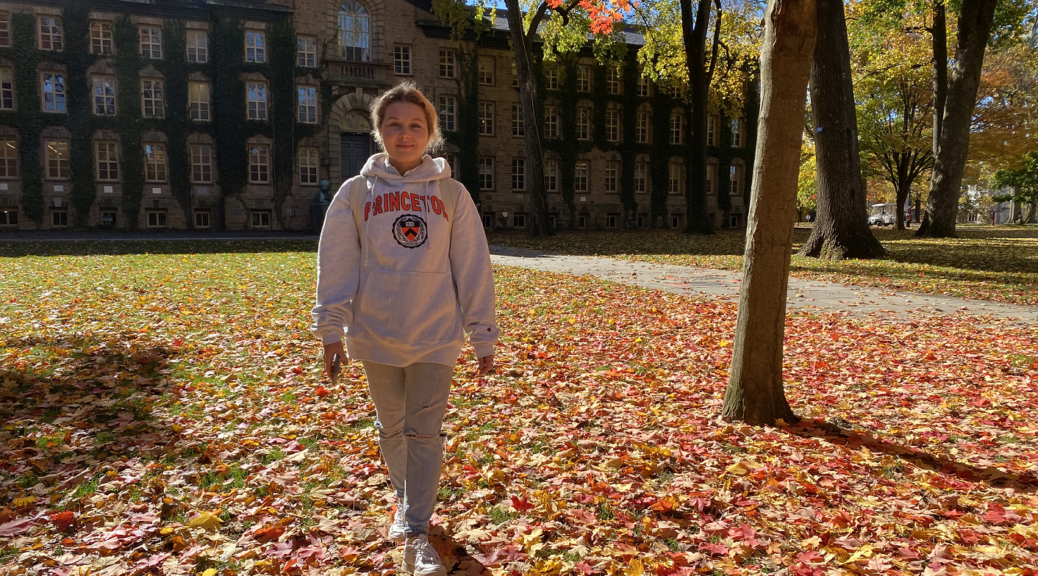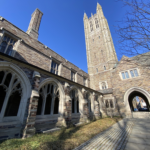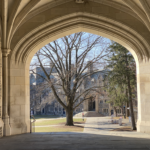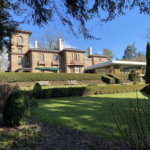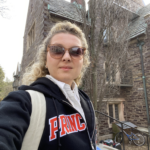Anna Pestova, our PhD in Economics candidate, has spent 7 months on a research stay at Princeton University. Read more about her unique experience, part of which has also been participating in the academic job market for economists.
Why did you decide to apply for mobility?
My impression is that everyone at CERGE-EI who passed a certain milestone and who received support from a supervisor would find it useful to go for mobility. In my case, it was natural to consider mobility right after the Dissertation Proposal Workshop (DPW) because I chose a research topic that needed external advice. The pandemic and family circumstances affected my plans and I went for mobility only when I was on the job market. Mobility is a unique opportunity to receive feedback on your research from top scholars. It’s also great experiencing life in a completely different country with a different culture.
My advice: go earlier. But even if you are on the job market, go anyway if you can.
Why Princeton?
Needless to say, Princeton is an Ivy League school and one of the most prestigious universities in the world. My personal choice of the host university was dictated by a combination of two factors that intersected at Princeton University: the research match with Atif Mian, a professor at Princeton, and an availability to all Princeton affiliates (including visitors!) of a unique US household credit register database which I wanted to work with.
My advice: create a list of host professors – faculty members, with whom you have the best research match. You have more chances to go if they are located at universities supported by certain funding schemes (e.g., GEOCEP). Discuss with your advisor(s) and with members of your research network if you can reach some of them through personal connections. Start from the most desired places with the best research match. Be patient! Top researchers are very busy. Ideally, go through multiple connections. My impression is that it increases chances of success. I was lucky to contact my host professor at Princeton through two top scholars: Steven Ongena and Oleg Itskhoki. I had this expectation that if I emailed a Princeton professor directly I would fail. Be specific – google if a university has a visiting program that you are qualified for. You can find Princeton’s visiting program here . Overall, it took me 2 months from the first email until the host professor responded and sent an invitation. In the meantime, I was almost discouraged and started to think about plan B.
What was the process of applying to Princeton?
Once you get an invitation letter, everything is quite straightforward. You write the statement of purpose, your supervisor formally confirms your mobility, you apply on the funding program website (GEOCEP in my case) and the host institution website. The tricky detail with Princeton is quite high financial requirements (and they are even higher if you plan to bring your partner and child with you). It is a good idea to accumulate some money in your account before going for mobility. GEOCEP funding confirmation letter is useful here but may not cover all the expected expenses.
What are the benefits of mobility for your research?
They are enormous. I’m lucky to have spent almost two semesters on the frontier of research in Economics. I presented three times at Princeton and received valuable feedback. People here point out weaknesses in your research and make valuable suggestions. I attended many seminars (sometimes 3-5 per week!), got exposure to a flow of ideas, and the research atmosphere inspired me to come up with several new research ideas. I also learned a lot from seeing how other people present and how faculty reacts to these presentations. I talked to faculty, post-docs, visitors, and students and learned from their perspectives. Lastly, I audited 3 courses and I attended a series of data-related workshops for free!
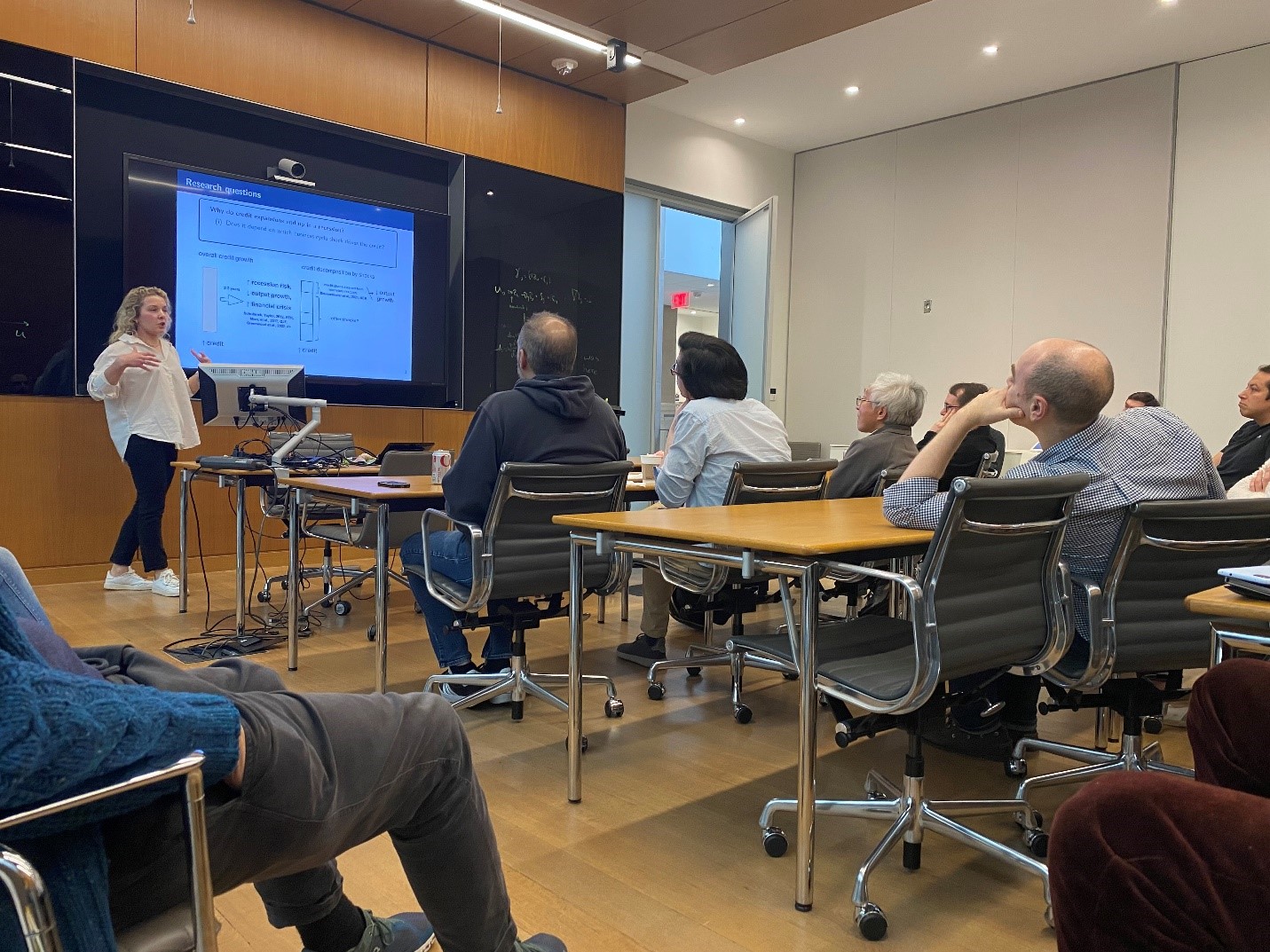
My advice: try to present your research while you are on mobility. To organize this at Princeton, you should start in advance. All slots for most seminars are distributed a month before the semester starts. For example, if your mobility starts in September, make sure you ask the administrative coordinator at your host institution to add you to ALL field-specific mailing lists in early August so that you will stay in the loop about seminars planned for next semester and apply for a slot. Normally, faculty and students welcome visitors’ presentations but you will be last in line.
What are the benefits of mobility for you personally?
I always wanted to visit the United States and learn what life looks like here. I definitely did it 😊 Getting a life experience is one benefit. I also met great people here at Princeton, both friends and colleagues.
What is living in Princeton like?
Princeton is a very specific place in terms of living. It is a small town in the middle of the state of New Jersey. There is the campus, 1-2 lively streets in town, and a very quiet (and safe!) residential area in the rest. Campus gets empty during Spring and Christmas breaks so you may want to schedule your travels accordingly so as not to get bored here 😊 The area is also very car-dependent which is not the best feature for me.
What does your typical day at Princeton look like?
Coming to the office in the late morning after a short walk around the fairy tale Harry Potter-style campus, attending a class or doing 2-3 hours of work; having a lunch student seminar, or a student reading group around noon; in the afternoon: meetings with people, work, late afternoon departmental seminar (if any), classes and workshops.
Is the funding enough to live on during the mobility stay?
In my case, not really, unfortunately, but that’s specifically because I have a little child who attends daycare and it costs as much as (GEOCEP) student funding. We were lucky to find free accommodation for a part of our stay (a person went traveling and let us live in his house). Overall, we are good. I would say that for a single student, funding should be sufficient especially given that there is a lot of free food on campus 😊
What did you like most about your research stay and what is the most challenging?
I liked talking to people here and learning new things. I liked that we were lucky to be attached to a specific lab at Princeton – MacroFinance lab – and Julis-Rabinowitz Center for Public Policy and Finance. It allows us to interact a lot with lab members and to enjoy administrative support. We participate in lab events and conferences and have our nice separate office(s) 😊
The settling period was very tough because we were not able to get around as there is no safe and reliable public transportation for those who live off-campus and we were not able to find childcare for the first month. This coincided with the start of being in the job market. I had to finish my job market paper, write dozens of job market-related letters, finish some applications, and entertain my kid at the same time.
What would you advise CERGE-EI students who plan on going for mobility? Is it better to go with an already drafted paper or it is better to go with a pure research idea and proposal?
My understanding is that both situations have their pros and cons. Having a draft paper and slides is good because you can make a seminar presentation in front of faculty and receive comments from them at one-on-one meetings. But risky in terms of spending some time on something which people may not like. Having a proposal is good to present at an informal student seminar and to informally discuss it over with faculty but my impression is that the probability of having a consultation with a faculty member is higher if you send them your draft and slides compared to the case when you say that you just have an idea.
My advice: I would not discourage people from going on mobility even when they are in the job market like I was because being here helped me a lot. When you schedule your job market interviews, the committee knows that you are at Princeton because the time zone is different and it increases your prestige 😊 You get to know Princeton job market candidates and can practice your spiel with them. You attend job market-related meetings at Princeton and hear some valuable advice from recent job market candidates. You can see (a part of) Princeton’s hiring process and attend job market talks of top job market candidates who were invited by Princeton for fly-outs.
Anna Pestova is a CERGE-EI PhD in Economics candidate. Her research investigates the role of macroeconomic shocks in business cycle fluctuations, with a special focus on bank credit, financial risks, and micro-level responses to aggregate shocks. In 2022 she was a guest (together with her husband Mikhail Mamonnov) in our Talking Economics Podcast, talking about sanctions towards Russia. She will be joining Toulouse Business School in September 2023.
